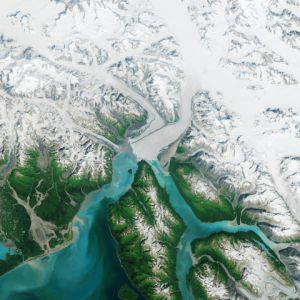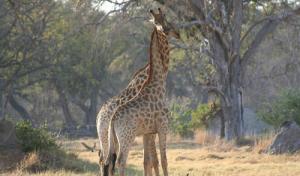Environment
Clean Air, Clean Energy And Conservation Groups Move To Defend State's Ability To Cut Carbon Pollution From Washington's Biggest Polluters
National and regional clean air, clean energy, and conservation groups took legal steps last Friday to defend Washington state’s authority to enact the Clean Air Rule that requires reductions in carbon pollution from the area’s largest polluters.
- Read more
- 321 reads
MEPs ban deep-sea fishing below 800 meters in the North-East Atlantic
A ban on fishing below a depth of 800 meters in the North-East Atlantic was backed by Parliament on Tuesday. This ban will apply to bottom trawling, which often wrecks sea bed habitats, and also restrict deep-sea fishing to the area where it took place between 2009 and 2011. Tougher checks at sea and transparent data collection rules will also apply.
- Read more
- 279 reads
Companies Operating in Norwood and Worcester Settle with EPA for Clean Water Act Violations
Manufacturing facilities in Norwood and in Worcester, subsidiaries of a multinational building materials company, have taken steps to come into compliance with federal clean water laws in order to settle claims by the US Environmental Protection Agency that they discharged stormwater and contaminated groundwater in violation of their permits and violated federal oil spill prevention and discharge laws.
- Read more
- 292 reads
EPA Requires Stronger Standards for Applying the Riskiest Pesticides
On December 12, the U.S. Environmental Protection Agency (EPA) is finalizing standards for applicators who apply restricted-use pesticides that are not available for purchase by the general public, and require special handling.
- Read more
- 274 reads
NASA/USGS satellite provides global view of the speed of ice

This image acquired by the Operational Land Imager (OLI) on Landsat 8, shows a close-up of the terminus of Alaska's Hubbard Glacier on July 22, 2014. With a near-real-time view of how glaciers and ice sheets are moving, researchers can integrate information about atmosphere and ocean conditions to determine what causes these ice sheets to change – and what that means for how much ice is flowing into the ocean. That could help provide critical information to coastal communities that will be most impacted by rising oceans.
- Read more
- 301 reads
WWF disappointed about certification of New Zealand orange roughy fishery
WWF is disappointed that the Marine Stewardship Council (MSC) certification of New Zealand’s orange roughy fishery has been upheld despite objections raised by WWF.
- Read more
- 305 reads
Sinclair Casper Refining pays $655K in past costs for cleanup at former Thermopolis, Wyo. refinery
Sinclair Casper Refining Company has paid $655,000 to reimburse the U.S. Environmental Protection Agency for response costs incurred at the Empire State Oil Company Refinery Site in Thermopolis, Wyoming. The company entered into a settlement agreement with EPA for the recovery of past costs associated with the cleanup of the site, including the removal of asbestos, in September. EPA received payment last week.
- Read more
- 309 reads
EPA Finalizes Stronger Standards for Workers Who Apply Riskiest Pesticides
The U.S. Environmental Protection Agency (EPA) is finalizing standards for applicators who apply restricted use pesticides that are not available for purchase by the general public, and require special handling, on December 12.
- Read more
- 345 reads
First national human rights investigation into climate change impacts proceeds despite opposition from fossil fuel companies
The Commission on Human Rights of the Philippines (CHR), on December 8, initiated the next steps in the world’s first-ever national investigation into human rights harms resulting from climate change, despite apparent opposition from some fossil fuel companies.
- Read more
- 291 reads
New bird species and giraffe under threat – IUCN Red List

The giraffe (Giraffa camelopardalis) is now threatened with extinction.
- Read more
- 278 reads
Human Rights
Fostering a More Humane World: The 28th Eurasian Economic Summi

Conscience, Hope, and Action: Keys to Global Peace and Sustainability

Ringing FOWPAL’s Peace Bell for the World:Nobel Peace Prize Laureates’ Visions and Actions

Protecting the World’s Cultural Diversity for a Sustainable Future

Puppet Show I International Friendship Day 2020

